Search for non-native species information
All of our resources in one place
Search results
You searched for "biosecurity"
Our partners
Read more on the Aquatic Biosecurity Partnership .
Yorkshire Invasive Species Forum
All volunteers are given an initial workshop which educates them on good biosecurity practice (linking into the GB Non-Native Species Secretariat’s ‘ Check, Clean, Dry ’ campaign), INNS identification and Yorkshire Wildlife Trust’s health and safety policies and processes.
Awareness raising materials
Training resources Training materials on non-native species and biosecurity , including free online training. Materials produced by other organisations Non-native crayfish game Learning & Training | Scottish Invasive Species Initiative including an Engagement Initiative .
Medway Valley Countryside Partnership
In 2015 these events will include biosecurity information. All the invasive plants in the area (with the exception of Balsam) are logged on GPS and detailed ArcGIS maps are produced each year, thus monitoring the reduction of these plants over a long period of time.
Bermuda
This species is on the IUCN list of 100 of the world’s worst invasive alien species Pheidole megacephala Big-headed Ant This species is on the IUCN list of 100 of the world’s worst invasive alien species Biosecurity In 2017 a biosecurity gap analysis (PDF) was completed.
Anglers
Download an angling event biosecurity Pack and view Check Clean Dry guidance for event managers .
Local Action Group Toolkit
Biosecurity When working or volunteering in the field, there is a risk that you could accidentally spread invasive non-native species and other biosecurity threats, such as diseases, between sites on your clothing, footwear, equipment or vehicle. You can reduce the risk by following a good biosecurity routine.
Help spread the word
Arrange a training session on biosecurity, identification or recording for your team or others. Free online training is available. Share Be Plant Wise materials with a green-fingered friend. Arrange a Check Clean Dry demonstration at a local angling / paddling / sailing club to show how easy it is to keep kit free of invasive species.
Be Plant Wise
Find out more about the Aquatic Biosecurity Partnership . [image src="/assets/led_landscape_colour.jpg" id="15054" width="262" height="100" class="leftAlone ss-htmleditorfield-file image" alt="Logo text reads 'Love every drop.
RAPID Life project
A second phase produced awareness raising materials and training toolkits for water resource managers and user groups along with materials to improve uptake of biosecurity to slow the spread and prevent introduction of new IAS in regions.
